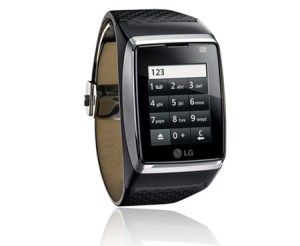
Constant, close contact with your friends. That’s the promise of a “Facebook phone.” The modified Android OS and mobile homescreen replacement that sources tell us Facebook will unveil April 4th pushes your social life to you so fetching it isn’t interruptive. The news feed brought us ambient intimacy, but Facebook’s homescreen could turn that social graph awareness into a sixth sense.
While it only takes a quarter of a minute each time, reaching for your phone, waking it from sleep, firing up the Facebook app, and loading your latest notifications does pull you out of the present. Checking the news feed for the latest photos and stories from your friends is a conscious decision. You’re either living your life or reading Facebook. The social network would surely prefer those to be one and the same.
If that data automatically fed right into your homescreen, every time you opened your phone you’d be instantly up to date on conversations with friends and get a peek into their lives. And if Facebook can pipe this content into the lock screen, it’d be even more immersive, like a true heads-up display. It’s a deeper way to plug in, where the shell disappears and you gain a more visceral connection to the people you care about.
This is the purpose of what Facebook plans to launch next week, which my sources got me the scoop on right when the big press event was announced yesterday. It’s a Facebook-ified homescreen that will be shown off on an HTC handset running a version of Android modified by Facebook, similar to what Amazon did to create the Kindle operating system.
 Making Facebook an indigenous resident of your phone’s homescreen could accelerate your social life. It might reduce the time it takes you to respond to messages or continue a comment thread. If a friend is down the street, Facebook could have a better chance of advising you to join them. Giving Facebook a way to tell you more directly about what’s going on in your immediate vicinity could be important as it focuses more on local discovery.
Making Facebook an indigenous resident of your phone’s homescreen could accelerate your social life. It might reduce the time it takes you to respond to messages or continue a comment thread. If a friend is down the street, Facebook could have a better chance of advising you to join them. Giving Facebook a way to tell you more directly about what’s going on in your immediate vicinity could be important as it focuses more on local discovery.
If this all seems like Facebook overload to you, you probably won’t buy the HTC phone just to sport this new homescreen. In the past, salesand surveys of sentiments about a Facebook-integrated handset have shown little demand of a ‘Facebook Phone’ with a capital P.
But if it didn’t interfere with or detract from your other apps and overall smartphone experience, but just augmented it with live social info, a ‘Facebook phone’ with a lowercase ‘p’ and its social homescreen could become something you wouldn’t mind having. Maybe it wouldn’t be a priority when buying a handset, but “Facebook Home-enabled” could be another feature in a device’s “Pros” column. And if Facebook made a more basic version of the homescreen replacement available as a traditional app download for all Android phones, I think a fair amount of hardcore social networkers would install it.
After all, it would put you on the cutting edge of Facebook’s technology. Similar to how Facebook uses its standalone apps like Messenger and its new Android beta club to field test new features with a set of guinea pig early adopters, Facebook Home could let people experience the next wave of social before it trickles down to iOS and the rest of the world.
That, combined with the immersive, non-interruptive experience I describe above are why I see Facebook’s new “Home On Android” as its version of the iWatch or Google Glass. It might not appeal to everyone just yet, but some will want to experience Facebook’s vision for the future of friendship.










.jpg)



.jpg)

